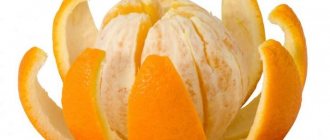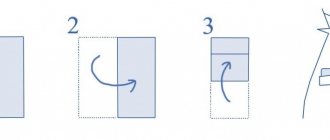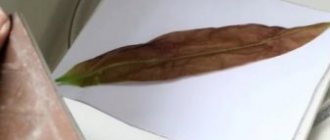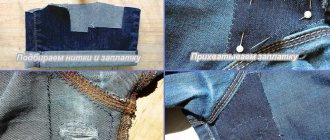Orange is the number one way to lift your spirits at any time of the year. And how much benefit there is from it! Fragrant citrus is useful not only as food, but also as a bright decor for all occasions. Just first you need to dry it properly. How to do this in several ways - read in this article.
What is dried orange useful for:
- for making chips, desserts, aromatic tea, mulled wine;
- for decorating different rooms (bathroom, kitchen, etc.);
- for panels and other decorative compositions (in combination with other fruits and spices);
- for New Year's decor - Christmas tree, candlesticks, Christmas wreaths, garlands;
- for scrapbooking;
- for filling vases, aromatic potpourri.
Below, options for using dried oranges will be discussed in more detail.
How to prepare an orange for drying?
To begin, select specimens of the desired size and color. If you are planning to decorate a card, choose a smaller fruit, make a panel or a garland, or a larger one. The main thing is that the citrus fruits are bright and of medium ripeness (dried unripe slices look faded, and overripe ones may darken).
Wash and dry the orange with a paper towel or clean towel.
- Cut into even rings 3–5 mm thick. If you cut it too thin, the slices will look transparent and will not hold their shape.
- Remove the seeds from them.
- To maintain brightness, soak the cut rings in acidic water for 20 minutes (1 lemon per liter of water).
- Dry the citruses thoroughly with paper napkins or a clean towel, otherwise they will not dry, but will boil in their own juice.
- If you want to dry the orange whole, then make longitudinal cuts in it, as in the picture (they will need to be renewed during the drying process).
Now you need to decide on the drying method.
Method 2. In an electric dryer
This is the easiest way, although it takes longer. The procedure is as follows:
- Cut the oranges as in the previous version.
- Preheat the dryer to a maximum temperature of 70 °C.
- Place the slices in a single layer on trays.
- Leave to dry overnight, a maximum of a day (depending on the power of the electric dryer).
To ensure that citrus fruits are dried evenly, it is advisable to change the trays every 1.5 hours.
We wrote about how to choose the right dryer for fruits and vegetables here >>>
Pros:
- minimum effort;
- there is no such heating of the air as when using the oven.
Minuses:
- not everyone has an electric dryer (dehydrator) at home;
- deformation of oranges with this drying method (perfectly even circles will not be obtained).
Drying oranges on a Walter electric dryer 1000 lux with a timer
Thus, the method is simple, but not ideal. Luckily, there are other options for drying oranges.
Calorie content
If you are concerned about your figure, then you should not overuse dried oranges with added sugar. But objectively, you won’t be able to eat a lot of them.
The calorie content of fresh fruit is about 35-40 kcal per 100 grams. When dried, the calorie content increases to 240 kcal.
Due to dehydration, that is, the process of removing moisture, a product consisting mainly of water loses a huge part of its mass. On average, the weight of an orange after drying decreases by 10 times. And that's the minimum. It turns out that from 1 kilogram of fresh oranges you can get no more than 100 grams of dried rings. But it is in this fruit cracker that there is an incredible aroma, taste and great benefits for the body.
There are different ways to dry oranges. Starting from modern electric dryers and ovens with convection mode, ending with microwaves and drying in the open air, in the sun.
Compared to fresh citrus fruits, dried counterparts have a much longer shelf life. If the proper conditions are provided, the rings will remain tasty and healthy for a whole year.
Method 3. On the battery
An elementary way is to cut oranges and place them on parchment directly on the radiator for 2-3 days.
When the pieces are almost dry, you can make a hole in each with a sharp object (if you plan to make some kind of hanging decor from the oranges - garlands, Christmas tree decorations, etc.).
You can also make a homemade battery dryer. To do this you will need 2 identical pieces of corrugated cardboard and thread.
- Make a lot of holes in the cardboards for air circulation.
- Place orange slices between two cardboards and wrap the resulting “sandwich” with thread so that the citrus fruits do not fall out.
- The structure can be placed behind the battery or between sections for 5–10 days. It needs to be turned over once a day.
Of course, the option without cardboard is much faster, but in this case cardboard is needed so that the pieces do not deform during drying. If you don’t need an ideal shape, then the method without cardboard will also work.
Interesting fact! Orange is not a fruit, but a multi-celled berry. Moreover, according to statistics, most oranges have exactly 10 segments.
Pros: With this drying method, oranges will retain their beautiful orange color and shape.
Minuses:
- for a long time;
- you need to do homemade drying if you need perfectly smooth workpieces;
- can only be done during the heated season;
- blanks can only be used for decoration, due to the unhygienic nature of the method.
As you can see, there are quite a few disadvantages, but one “fat” plus outweighs them all if you are drying oranges specifically for decoration.
Checking product readiness
Only after cooling can you determine the degree of drying, since hot pulp will always seem damp. Dried fruits are ready if the circles: have decreased in size, turned golden or amber in color, have a sour taste with a slight bitterness, become brittle and crumble easily when you try to bend them.
Well-dried workpieces become hard, acquire a rich golden-amber color and a fragile structure
The real taste of natural orange chips is, to put it mildly, specific, or rather, not for everyone. Therefore, some housewives practice preparing candied fruits with preliminary “brewing” of the raw materials in sugar syrup.
Method 4. In a frying pan
Line a thick frying pan with parchment, place orange rings there and place over low heat. Drain the juice and turn the slices over as often as possible, otherwise they will burn.
Pros: speed of preparation.
Cons: there is a high chance that the oranges will burn; constant monitoring is required.
Method 5. In the microwave or convection oven
Cover a plate with parchment, lay out the citrus slices, and put in the microwave. Every 10–30 seconds, you need to remove the slices and blot them with paper napkins, pouring the juice from the plate if necessary.
This is a rather extreme method - if you miscalculate the time and temperature, the citrus will burst into flames in the microwave like a torch.
In an air fryer, thin slices will dry in an hour at 100 °C, thick ones in two hours.
Method 6. Outdoors
Nothing will dry fruits and berries better than air and sun - and oranges are no exception. You can hang them on a line in the kitchen or balcony, or lay them out on the windowsill (on cardboard or parchment) and wait until the slices dry naturally.
If you live in your own home, you can dry oranges outside. Depending on the dryness of the air, the process will take 1–3 days.
As a result, you will not get very even circles, so natural drying is often combined with one of the methods listed earlier. For example, citrus fruits are first dried in the oven, and then dried on a windowsill or table.
How can you tell if oranges are dried correctly? There are two criteria for readiness:
- fragile core;
- rustling sound.
Under-dried citrus fruits are a little soft inside and may soon become moldy.
Method 7. Drying the zest.
The zest is usually dried for culinary purposes, so it is recommended to use non-waxed citrus fruits - but which seller will admit to you that their fruits are rubbed with chemicals? Therefore, at least wash the peel very thoroughly. Then:
- Carefully cut off the rind, being careful not to touch the white part.
- Place the cut peels on a muslin cloth.
- Leave to dry in a warm, dry place.
With the same success, orange peels can be dried using an oven or electric dryer (5-8 hours until completely dry). By the way, you can simply chop them finely or coarsely, depending on what purpose you need the dried peel for.
How to store it correctly?
Please note: the slices may be slightly sticky immediately after drying, but they are ready to use. The main thing is to make sure that over time they do not turn from bright and orange to green and fluffy - for this they need to be stored correctly.
Three storage options:
- In a sealed plastic bag (you can also put cinnamon and cloves in there).
- In a paper bag or towel.
- In a glass container.
Some more storage tips:
- keep dried oranges in a cool, dry place;
- A plate of salt will help get rid of excess moisture in the storage area;
- dry citrus fruits break easily, so handle them with care;
- It is better to store dried orange separately from other berries and fruits;
- To prevent moths from getting into the jar, put a sprig of mint in it.
Check the dryer from time to time for moisture, mold, or moths. Typically, dried oranges are stored for no more than a year - then stocks are renewed.
Storing dried fruits
Dried oranges are stored for about a year , but subject to generally accepted rules.
Packaged in woven or paper bags, once on the same shelf next to odorous products, they quickly lose their unique aroma. Glass jars with tight-fitting lids are ideal for slices. Give them a safe place in the kitchen cabinet or pantry, where the workpieces will be hidden from direct sunlight and heating appliances.
Slices packed in plastic bags quickly become moldy and rotten during storage, even in the refrigerator.
Fragrant dried orange serves as an excellent material for making beautiful New Year garlands and Christmas wreaths
Lovers of natural orange chips eat them as a delicious and healthy product without additional heat treatment. Some housewives mix them with dried fruit and berries to make compotes, use them as spices for mulled wine or vitamin supplements for aromatic teas and other health-promoting drinks.
In skillful hands, dried oranges turn into bright elements of New Year's garlands and Christmas tree decorations, into decorations for gift bags and boxes, all kinds of intricate wreaths and other handmade things that delight the eye. There are many options, since environmentally friendly creative ideas for home improvement are a good deed that lifts the spirits of any creator and everyone around him.
How to use dried oranges?
Let's look at the most interesting ideas for using these southern fruits.
- Make a Christmas wreath. You can make the base for it yourself or buy it in a store. In any case, the process will bring you joy, and your home - comfort and a pleasant aroma. Any spices, dried berries and fruits, pine cones, ribbons, etc. can be used.
- Decorate the Christmas tree. If you love the “country” style in the interior, then you can decorate the Christmas tree with everything that comes to hand. Any dried citrus fruits will look very organic in this decor. And by adding a cinnamon stick to the decoration, you will get not only an interesting toy, but also a natural flavor.
- Make a decorative composition or aromatic potpourri. There are many options here. For example, you can dry citrus slices, zest, spices, various fruits and berries, add a drop of essential oil (orange, spruce, eucalyptus, etc.) and keep this mixture in a closed zip bag for 24 hours. Then pour it into a glass jar or plate and enjoy the pleasant aroma.
- Decorate a gift bag or box. Both an adult and a child will be pleased to receive a gift in such packaging.
- Make handmade soap. A wonderful gift for lovers of all things natural, or just a loved one.
- Make a garland. This decoration can be hung on the door, above the table, fireplace, bed, on the wall - it will look original and fresh anywhere. Oranges in a garland can be supplemented with spruce branches, cones, ribbons, jute rope, etc.
- For decorating cakes, mousses, cocktails, preparing mulled wine, tea. Dried citrus fruits retain their taste, aroma and pleasant sourness, so they are perfect for preparing various dishes.
Recipe for spiced tea with dried orange and lemon
You will need:
- 50 g black tea;
- 1 dried orange;
- 1 dried lemon;
- 0.5 tbsp. l. cardamom;
- 1 cinnamon stick;
- 1 tsp. carnations;
- 0.5 tsp. allspice;
- 50 g dried cranberries (optional).
Heat a dry frying pan, hold the spices on it for 1-2 minutes, then grind with a blender or mortar. Grind the dried citruses (not to powder). Mix spices and citruses with tea, place in a glass jar and leave to steep for 2 weeks. Deliciously aromatic tea is ready.
- For festive, themed photo shoots. Now, in the era of Instagram and aesthetic pleasures, high-quality, thoughtful photos are highly valued. Bright citrus slices can become a juicy accent and decorate any frame, evoking the right emotions in the audience.
As you can see, there are a lot of options for using dried oranges. This is the case when the source material is cheap, but jewelry made from it is expensive and stylish.
Fruit preparation
Before you start drying oranges, no matter which method you choose, start by preparing the fruit. Orange and lemon slices with peel are used in holiday decorations and to create panels. Therefore, you should choose ripe, but not too soft fruits so that their color is rich. You will also need:
- long and sharp knife;
- cutting board;
- paper towels;
- baking paper;
- sugar.
First, rinse the fruit thoroughly. Then you can move on to preparing even, shaped slices. Their thickness is very important. The slices should not be too thin, as they may crack or wrinkle when drying. This is a common problem that occurs when fruit is cut too thin. On the other hand, thick ones will be more difficult to dry, and they also do not allow light to pass through, which does not look very aesthetically pleasing. The optimal slice thickness is approximately 5 to 8 mm.
What is dried orange used for?
- for making chips, desserts, aromatic tea, mulled wine;
- decorate different rooms (bathroom, kitchen, etc.);
- for panels and other decorative compositions (in combination with other fruits and spices);
- for New Year's decoration: Christmas trees, candlesticks, New Year's wreaths, garlands;
- for albums;
- for filling vases with fragrant potpourri.
Beneficial features
Dried orange is a low-calorie dietary product. During the drying process, all vitamins (B, C, E, minerals calcium, magnesium, potassium, phosphorus, etc.) remain in it, so it is an excellent alternative to fresh berries and fruits; it is convenient to use as a snack.
The calorie content of the dried product is 246 calories per 100 g.
Thanks to its rich vitamin composition and dietary fiber, dried orange is a healthy and tasty treat that improves metabolism and lifts your mood.
What else do you need to know
The smell of orange plays an important role; this is what becomes an additional argument in favor of drying in the peel, especially when it comes to whole fruit. Essential oils are baked, so the smell becomes less pungent, lasts for a long time, and continues to freshen the air in the room, giving a good mood.
However, if you use orange slices in an application, it is better to fill them with a fixative that suits your composition - wax, varnish or other substances that block contact with air.
If your soul requires creativity, try this simple way to decorate your house or cottage - and perhaps this idea will give you a feeling of comfort and magic among ordinary everyday life.











